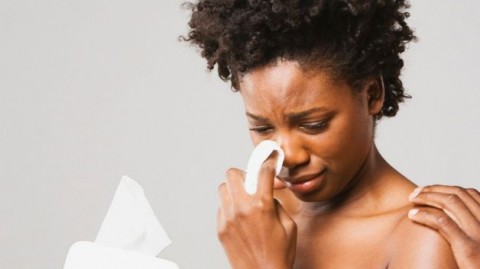Is mental health taboo in the African American community? Black People Experience Depression At Higher Rates Than Whites Depression is a huge health concern among African Americans — particularly women — but mental health is often stigmatized in the Black community. Although it can impact people from all walks of life, cultural habits and historical experiences can cause depression to be expressed and addressed differently among Black women. Via Psych Central reports: “During slavery you were supposed to be the strong one. You weren’t supposed to speak. You were supposed to just do,” said Esney M. Sharpe, founder and CEO of the Bessie Mae Women’s Health Center in East Orange, N.J., which offers health services for uninsured and underserved women. “…Our moms and our grandmothers always told us to suppress. Just be quiet, chalk it up, get up, dress up, fix your face, put on your best outfit and just keep going,” she said. Depression affects about 19 million Americans. Data from a study published by the Centers for Disease Control and Prevention found that women (4 percent versus 2.7 percent of men) and African-Americans (4 percent) are significantly more likely to report major depression than Whites (3.1 percent). But the CDC also finds that just 7.6 percent of African-Americans sought treatment for depression compared to 13.6 percent of the general population in 2011. Because the findings show that women — regardless of race or ethnicity — are more likely than men to experience depression and African-Americans experience depression at higher rates than Whites, then Black women in turn also experience high rates of depression compared to the general population. It should be noted that despite other studies showing conflicting data that are at odds with these findings, the CDC appears to be more reliable because it is the most recent study of its kind. Black women are among the most undertreated groups for depression in the nation, which can have serious consequences for the African-American community. “I’ve tried to commit suicide over 15 times. I have the scars on my arms of wanting to kill myself and not even know why,” said 45-year-old Tracey Hairston, a member of the health center who has bipolar disorder. A report published by researchers at the University of Wisconsin-Madison found that poverty, parenting, racial and gender discrimination put Black women — particularly low-income Black women — at greater risk for major depressive disorder (MDD). Depression is not only treated at lower rates in the African-American community, particularly among Black women, but of those who do receive treatment, many don’t receive adequate treatment. Hector M. Gonzalez, Ph.D., and colleagues at Wayne State University, Detroit, found that overall, only about half of Americans diagnosed with major depression in a given year receive treatment for it. But only one-fifth receive treatment consistent with current practice guidelines. African-Americans had some of the lowest rates of use of depression care. Because Blacks, particularly Black women, experience higher rates of depression than their White female or Black male counterparts but receive lower rates of adequate treatment, they remain one of the most undertreated groups in the United States. Several major reasons account for high rates of depression and low rates of treatment for depression among African American women. A lack of adequate health care can significantly contribute to low rates of treatment among African-Americans, particularly African-American women. More than 20 percent of Black Americans are uninsured compared to fewer than 12 percent of Whites, according to the Department of Health Human Services. You can’t pray the pain away! What do you think of the mental health findings?

Read the original post:
Race Matters: Study Shows Black People Experience Depression At Higher Rates Than Whites But Don’t Seek Help
























